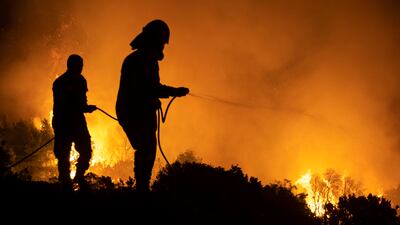Experts behind the crucial climate report that underpins this week’s Cop26 summit believe governments will miss the target of limiting global warming to 1.5°C by a wide margin, a new survey has shown.
More than 80 per cent of scientists who responded to the survey for the journal Nature said they thought they would see “catastrophic impacts of climate change” during their lifetimes. A majority predicted that global temperatures would rise by at least 3°C above pre-industrial levels by the end of the century.
Scientists warn that a rise of more than 1.5°C would have a catastrophic effect on some species and G20 leaders at the weekend set that target for the end of the century. “We recognise that the impacts of climate change at 1.5°C are much lower than at 2°C,” G20 leaders said in Rome on Sunday.
But only four per cent of those questioned in the poll thought the world would meet the target of limiting warming to 1.5°C. In an example of the effect of greater temperature rise, the Worldwide Fund for Nature gave a warning that warm water coral reefs will all but disappear with global warming of only 0.5°C more than the agreed target.
The assessment was based on the views of 92 scientists who were involved in writing this year’s report by the Intergovernmental Panel on Climate Change (IPCC), which said fossil fuel emissions were driving unprecedented changes to the planet. That report was approved by 195 governments in August.
The scientists, representing about 40 per cent of those involved in the study, said they were sceptical about the government promises to limit the scale of global warming despite pledges made in Paris in a 2015 agreement.
Fewer than half of those questioned said the crisis had forced them to reconsider major life decisions, including where to live and whether to have children.
Paola Arias, a climate researcher in Colombia who responded to the survey, told the journal she had decided not to have children because of the uncertain future of the planet and potential upheaval from mass migration, inequality and civil unrest.
“I’m not saying that that is a decision that everyone should make but it’s not something I am struggling with much any more,” she said.


